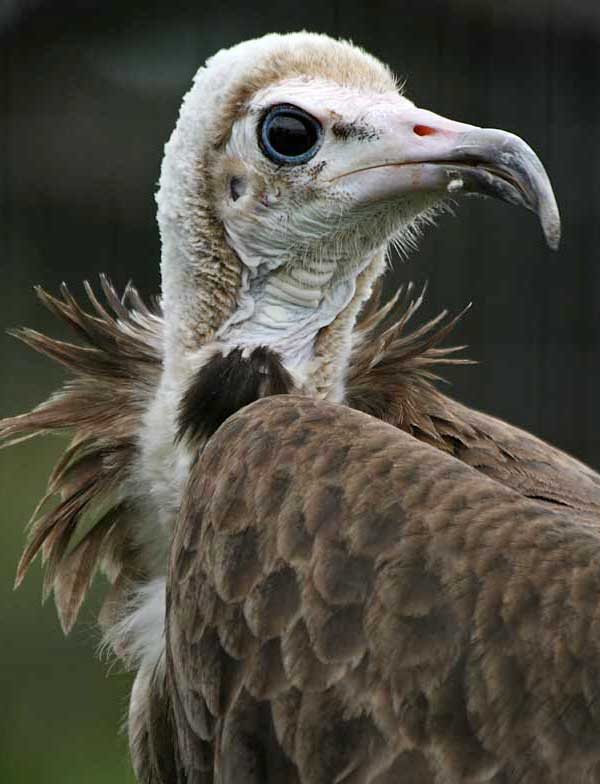Contact Details: Scotch Macaskill, Dirt Road Traders, Currys Post Road, Howick, KwaZulu-Natal, South Africa. Tel: +27 (0)82 578 2329. Privacy: Your privacy is guaranteed. See our Privacy Policy for more. This site accepts advertising and other forms of compensation - see Disclosure and Advertising for details. Site updated: 2022. Copyright © 2002 - 2022 Scotch Macaskill
|

Custom Search
|
Hooded Vulture Portrait Caption: Portrait of a Hooded Vulture, African Bird of Prey Sanctuary, Ashburton, KwaZulu-Natal, South Africa.
© Scotch Macaskill
Caption: Portrait of a Hooded Vulture, African Bird of Prey Sanctuary, Ashburton, KwaZulu-Natal, South Africa.
© Scotch Macaskill |
|
Camera: Canon EOS 400D (Digital Rebel XTi); Lens: Canon EF70-300mm f/4-5.6 IS USM; Focal Length: 300mm; Shutter speed: 1/1000; Aperture: f5.6; ISO: 400.
The hooded vulture (Necrosyrtes monachus) reminds me of a less-than-complimentary caricature of an English barrister wearing his court-room wig. Some, no doubt, would say the similarity between barristers and vultures runs more deep. In truth, both are merely doing their jobs. Within the vulture family, hooded vultures are smaller, with thinner bills, than their cousins, so find themselves low down in the pecking order. The undisputed king is the lappet-faced vulture with its massive, powerful bill that enables it to rip into parts of a carcass that are too tough for the others. Once these dominant birds have eaten their fill, they’re often followed by hordes of white-backed vultures that fight and shove to get into the action. Fortunately for the hooded vulture, it’s long, thin bill can get into cavities that the others couldn’t reach, so it does extract some food from the carcass. In general, vultures can’t compete with the regal eagles and most other birds of prey in the glamor stakes and are often dismissed as ugly scavengers. Yet they play a crucial role in cleaning up carrion and the last remains of dead animals – anything left behind by the hyenas and jackals. In this way they limit the spread of disease. They also help control rodent populations that, if left unchecked, could decimate crops. Despite this, in many parts of the world vultures are under threat because of human expansion and resultant habitat loss. In Africa many die from poison, usually from cleaning up the remains of rodents and other small mammals that have been poisoned by farmers to protect livestock. According to the Endangered Wildlife Trust, "vultures are faced with various threats including poisoning, persecution, electrocution, collision with powerlines, drowning in farm reservoirs, food shortages and loss of suitable habitat. Recent research has shown that vultures are one of the species most threatened by the trade in traditional medicine, and there is strong evidence to suggest that traditional use is partly responsible for the rapid decline of vulture populations in the (African) sub-continent". Permitted Uses: See Terms of Use. Return to Bird Pictures Pg 1 |
|
Comments
Have your say or ask any questions in the comment box below.